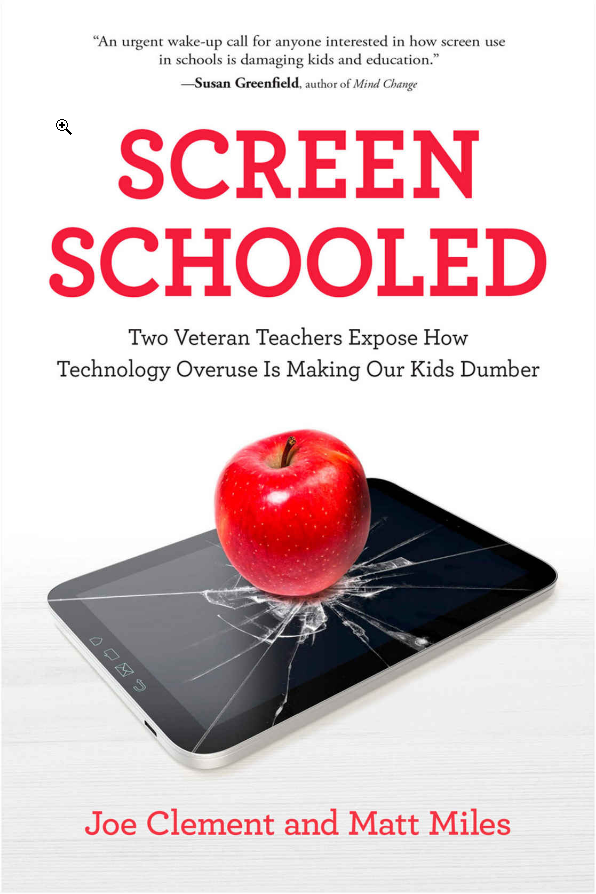Social studies teachers publish a book about effects of technology overuse in education
October 12, 2017
The learning environment has changed dramatically over the past decade due to the growing influence of technology. While many teachers choose to embrace tech in the classroom, others feel that traditional methods can be more effective and that the overuse of technology might yield negative results for students.
After observing what they describe as a decline in student ability to think, focus, problem solve and interact socially, social studies teachers Joe Clement and Matt Miles started the blog paleoeducation.com, which advocates for the use of traditional teaching methods instead of a full shift toward blended learning. The blog grew in popularity, which inspired the teachers to write and publish a book together.
“[The book is] called ‘Screen Schooled,’” Miles said. “It’s about the ways in which the overuse of screen time is hurting kids and the way they learn and develop.”
The process of writing and editing the book took many months, but it is now available on Amazon.com and at Barnes and Noble. While the concepts explored in the book are not new and have been researched and deliberated before, Miles and Clement hope that their viewpoints will add an additional important perspective to the ongoing discussion.
“There are a lot of books about how the overuse of screen time is hurting kids,” Clement said. “But those are written by psychologists, therapists and neurologists. We wanted to let people know what it looks like from a teacher’s perspective.”
Some faculty members are supportive of their colleagues’ writing and look forward to embracing the book’s message.
“I’ve purchased my copy of the book and I’m eager to see what [Clement and Miles] have to say,” special education teacher Matt Gilchrist said. “For a long time, we’ve been fed the idea that technology is good and there are a lot of benefits, but it’s important to see what works for you as a teacher and what you think works for students.”
Both writers hope that the book will influence educators and parents around the world and convince them that an over-reliance on technology can hinder learning. Although the book encourages the use of traditional teaching methods, it does acknowledge that technology has become an important part of society.
“People like to say that we’re ‘the anti-technology guys’ and that we hate all technology because we’re old and dumb and don’t understand these newfangled contraptions,” Clement said. “However, what we’re saying is that if you read the science, there seems to be little doubt that screen time is overused by young people.”
Many teachers who advocate for the use of technology in the classroom blend new tools with traditional methods to provide a variety of learning experiences for different types of learners. Chantilly is now in second year of the FCPSOn initiative, and there is a team of educators who work to guide teachers through blending technology use into their classrooms while encouraging student interaction and critical thinking
“Staring at a screen all day is not our goal,” School-Based Technology Specialist Margaret Sisler said. “We want to create the best learning environment possible, and technology is sometimes the way to do that.”
While some educators such as Clement and Miles prefer to use less technology in the classroom and others embrace the shift in education, most seem to agree that face-to-face physical discussion should play an integral role in learning and that interaction should always remain at the heart of the classroom experience, a message that Clement and Miles want to impart with readers.
“We hope educational decision makers will see technology as a tool, not the [only] tool for education,” Clement said. “However, when screens replace human interaction, a great deal is lost.”


